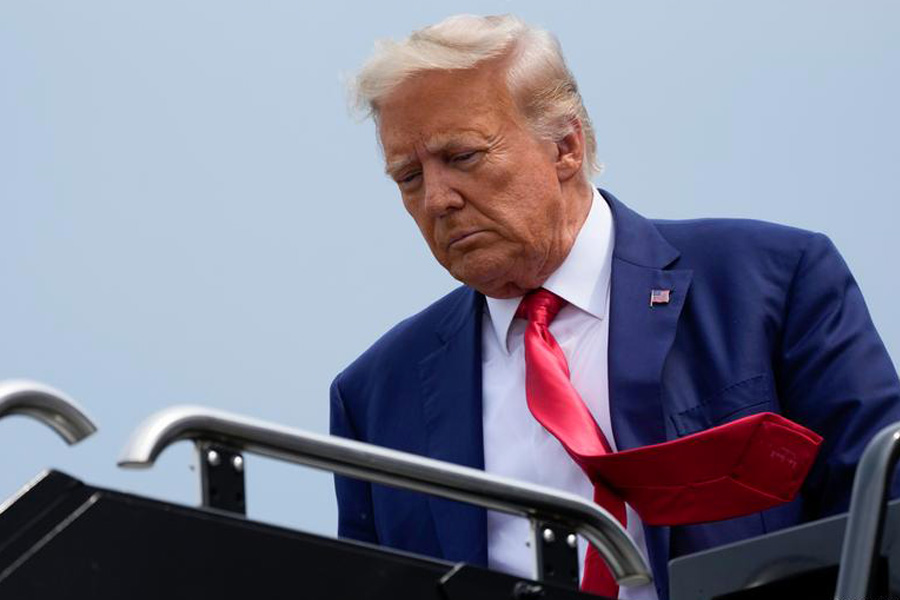A federal appeals court on Tuesday rejected former President Donald Trump’s claim that he was immune to charges of plotting to subvert the results of the 2020 election, ruling that he must go to trial on a criminal indictment accusing him of seeking to overturn his loss to President Joe Biden.
The unanimous ruling by a three-judge panel of the USCourt of Appeals for the District of Columbia Circuit handed Trump a significant defeat but was unlikely to be the final word on his claims of executive immunity.
Trump is expected to continue his appeal to the Supreme Court.
Still, the panel’s 57-page ruling signalled an important moment in US jurisprudence, answering a question that had never been addressed by an appeals court: Can former Presidents escape being held accountable by the criminal justice system for things they did while in office?
The question is novel because no former President until Trump had been indicted, so there was never an opportunity for a defendant to make — and courts to consider — the sweeping claim of executive immunity that he put forward.
The panel, composed of two judges appointed by Democrats and one Republican appointee, said in its decision that despite the privileges of the office he once held, Trump was subject to federal criminal law like any other American.
“For the purpose of this criminal case, former President Trump has become citizen Trump, with all of the defences of any other criminal defendant,” the panel wrote.
“But any executive immunity that may have protected him while he served as president no longer protects him against this prosecution.”
The panel’s ruling came nearly a month after it heard arguments on the immunity issue from Trump’s legal team and from prosecutors working for Smith. While the decision was quick by the standards of a normal appeal, what happens next will be arguably more important in determining when or whether a trial on the election subversion charges will take place.
The three judges circumscribed Trump’s ability to use further appeals of the immunity issue to waste more time and delay the case from going to trial — a strategy the former President has pursued since the start of the case.
The panel said, for instance, that the underlying case, which was put on hold by the trial judge in December, would remain suspended if Trump appealed its decision to the Supreme Court by Monday.
If the Supreme Court decided to take the case, it could issue its own order freezing the trial proceedings.
If the question does reach the Supreme Court, the justices will first have to decide whether to accept the case or to reject it and allow the appeals court’s ruling against Trump to stand.
If they decline to hear the issue, the case will be sent back to the trial judge, Tanya Chutkan, who scrapped her initial March 4 date for the trial last week but has otherwise shown every sign of wanting to move the charges toward trial as quickly as possible.
If, however, the Supreme Court does accept the case, the crucial question will become how quickly the justices act in asking for briefs and scheduling arguments.
New York Times News Service











